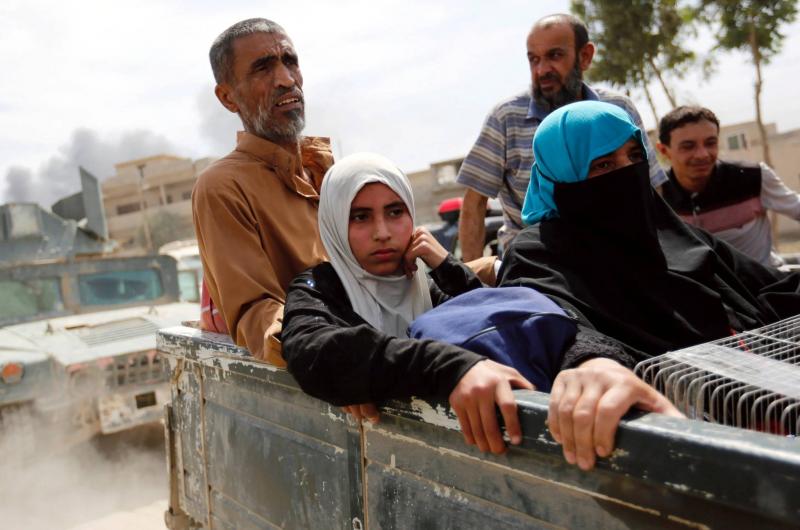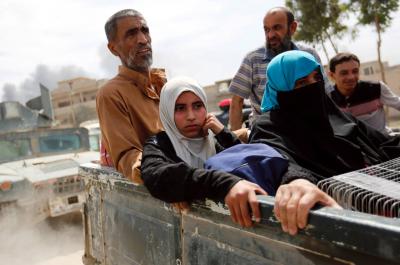The statistics related to domestic violence in Iraq continue to rise despite government efforts to curb this "serious problem," according to women's rights activists. An official report issued by the Iraqi Ministry of Interior this week revealed that "the number of domestic violence cases registered from January to May 2024 reached 13,857, the majority of which involved physical violence." The ministry's spokesperson, Brigadier Mukdad Miri, stated during a press conference on Wednesday that three-quarters of those subjected to domestic violence were women. Miri noted that "the Family and Child Protection Directorate conducted a five-year study on domestic violence from 2019 to 2023." He indicated that the study "showed an increase in violence in society, which is attributed to economic, cultural, and social changes, a misunderstanding of religion, widespread unemployment, and poorly managed exposure to social media that has encouraged the rise of illicit relationships outside of marriage, leading to increased cases of marital infidelity, as well as a significant rise in alcohol and drug use."
Domestic violence is a global phenomenon, but it continues to cause significant problems in Iraq. A 2012 study by the Ministry of Planning found that at least 36% of married women reported experiencing some form of psychological harm from their husbands, while 23% reported verbal abuse, 6% physical violence, and 9% sexual violence. While more recent national studies are lacking, women's rights organizations continue to report high rates of domestic violence. In 2021, the Family Protection Unit of the Ministry of Interior, which dedicated a hotline for complaints, recorded 17,000 cases of husbands assaulting their wives. A census by the Iraqi Ministry of Planning that same year revealed an increase in child marriage over the past decade. "25.5% of women were married before reaching 18 and 10.5% before 15," compared to 21.7% and 4.9% respectively in 2011.
A draft law on domestic violence was presented and discussed in the Iraqi Parliament in 2019 and 2020, but it has been stalled since then. Previously, a draft law concerning domestic violence was discussed in Parliament in 2015, but it met a similar fate. In 2020, UN agencies in Iraq expressed concern over the increasing number of domestic violence cases during the COVID-19 pandemic. The 2019 version of the draft law against domestic violence included provisions for services provided to victims, protective orders, penalties for violating them, and the establishment of a joint inter-ministerial committee to combat domestic violence. The law also mandates the creation of government shelters for victims in coordination with local women's rights organizations. Often, victims of domestic violence are temporarily sheltered in women's prisons.
The 1969 penal code applies to cases of violence against women or is often treated as ordinary misdemeanors. This law exempts rapists from punishment if they marry their victim, which is one of the main points that feminist organizations demand to be repealed. Additionally, many provisions of the Iraqi penal code tolerate domestic violence, including clauses that allow husbands to discipline their wives and parents to discipline their children. Perpetrators of violence or honor-related crimes may receive reduced sentences, as the penal code states mitigated punishments for acts of violence categorized as "honorable motives" or if a man catches his wife or female relative in the act of adultery or in an extramarital relationship.
In its 2023 report on Iraq, Amnesty International accused Parliament of failing to criminalize domestic violence and provide adequate protection for women and girls against gender-based violence. The report noted that in April of that year, a court in Baghdad sentenced the father of young blogger Tiba Ali to six months in prison for her murder on February 1, which led to protests in Baghdad against the lenient verdict. The organization states that Iraqi authorities have not taken any steps to amend provisions of the penal code that allow husbands to punish their wives and parents to discipline their children using physical punishment, nor to override the reduced sentences for "honor killings." The penal code also allows those committing rape to avoid prosecution by marrying their victims. Tiba Ali (22 years old) was killed by her father on the night of January 31 in Diwaniya province in southern Iraq, despite police attempts at mediation to resolve the "family dispute," and her father turned himself in to police after committing the crime.




